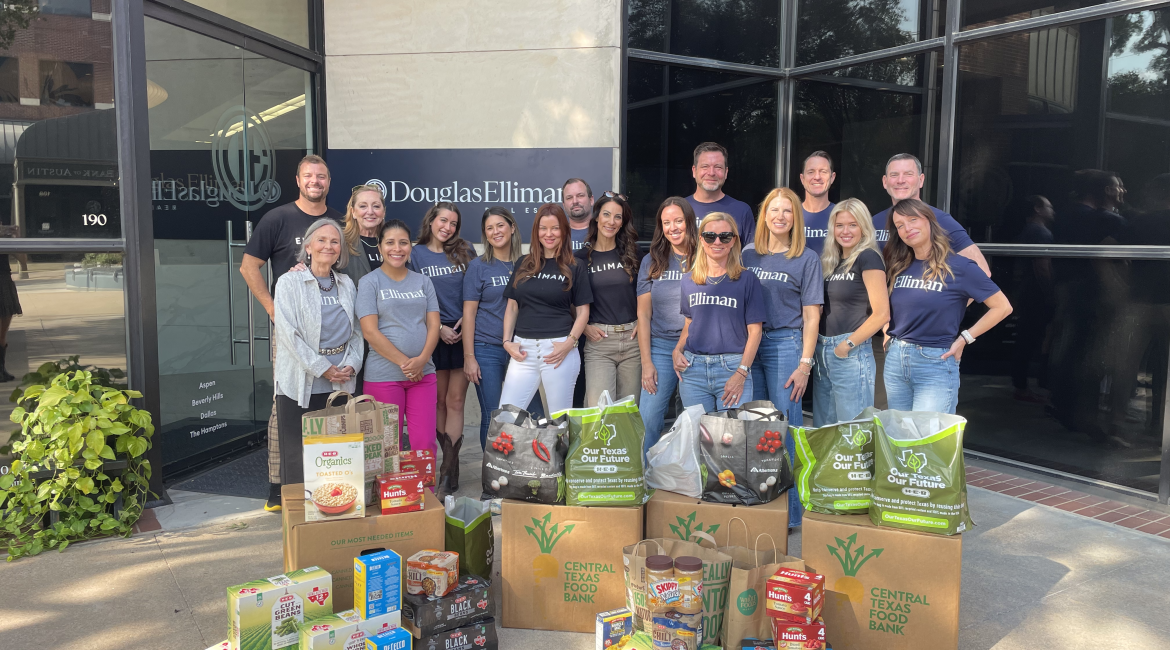Places
Buying Overseas: Homes That Earn Their Keep
by GTS Admin
May 2019
“I didn’t want to be a tourist in Italy; I wanted to be a part of Italian life.” Unique properties provide income potential for owners willing to channel their creativity and passion into turning a profit.
Claus Sendlinger knows a thing or two about uprooting himself in a quest to experience life to the fullest. The founder of Design Hotels™ and a heralded visionary in the hospitality arena, Sendlinger has called such places as Koh Tao, Tulum, and Mykonos “home” at one time or another. But with his latest move—to the largely undiscovered pastoral inlands of the Spanish island of Ibiza—Sendlinger sought more than just a beautiful home in an inspiring setting; he sought a community. Thus, like many of today’s smartest international travelers, he got creative: He let his home work for him.
“The idea of La Granja,” says Sendlinger of the 10-hectare farmstead that he helped conceive and manage a stone’s throw from his residence, “is to invite the most interesting people to the island and make this a place for them to share ideas.” Featuring a pine forest, fertile gardens, a master farmer, a stunning nine-bedroom farmhousetwo-bedroom guesthouse, and a host of musicians, DJs, and wellness practitioners who pop in to perform and disconnect from the larger world, La Granja has truly elevated Sendlinger’s island experience and sense of home. By incorporating an enlightened program of rituals into his life—from communal farming and slow-food workshops to lectures on diverse topics related to sustainability—he has been able to create and foster a spirit of organic togetherness.
“I wanted people to enter La Granja and see the other side of Ibiza,” Sendlinger explains, “to see how the island was 30 years ago, before all the tourists and craziness happened.” And see they do. Sendlinger’s La Granja is now sought out by such collectives as Habitas, as well as by a new movement of on-the-go international spiritual travelers.
Like Sendlinger, wise homeowners across Europe and the Caribbean are using their properties to generate income. The most obvious way is through seasonal rentals, but there are countless more creative options that are well worth considering, such as leasing a dock on your waterfront property (bear in mind that yearly docking fees for large yachts at prime spots can cost boat owners more than $350,000 annually), renting out storage space, hosting weddings and events, offering fishing rights to water on your land, even sectioning off a piece of your property to a vineyard that will pay to grow and harvest grapes there.
Or there is the path taken by Rosi van der Ploeg, who sought to get out of the Amsterdam version of the rat race and move to the Tuscan mountains of Italy.
“I didn’t want to be a tourist in Italy; I wanted to be a part of Italian life,”explains van der Ploeg, who took her then-boyfriend, now-husband Adriano to the corner of Italy she’d fallen in love with. “He was amazed that the houses were so beautiful and all falling apart. He is a builder and project developer, so when we came across an empty villa with seven apartments in desperate need of repair, I made some inquiries. Everyone knows everyone in a small Italian village, so two hours later the owner and a realtor showed up and the deal was done! No papers. All a verbal agreement and a handshake. We signed in the dust on the roof of a car. In a month, we got the real papers—and our 300-year-old villa.”
Van der Ploeg also got to thinking about how her home could help her achieve her goal of living the “Italian life” she sought. “We decided to fix up the apartments and rent them,” she says, noting that there was no electricity or running water when they began, “only bats flying around.” Rosi and Adriano quit their jobs and moved to Italy, working hard to renovate one apartment quickly—not so that they could live in it, but so they could have an income. “We camped in the unrenovated part of the villa,” van der Ploeg says with a laugh. “It was really primitive. But thinking back now, I realize that it was a beautiful time.” When that first apartment was ready, she made a website in Dutch and English, noting that “Italians don’t like to rent from foreigners.” Then one by one the apartments were renovated, and the villa has been fully booked ever since.
Still, after five years van der Ploeg felt that her life needed a new purpose. “When I was a kid, I loved horses, and close to us there was an old farm with six horses, but the owners only spoke Italian and couldn’t find international guests. I knocked on their door and asked to go for a ride, during which the owner explained that his dream was to have a working ranch for tourists. I told him that I could make a website and communicate to the world what he had to offer. It all went really well, but then the owner’s wife got jealous of the young ladies coming from all over the world to ride. And if an Italian woman gets angry, you’d better run! So what started as a dream for both the owner and me suddenly ended.”
What happened next for van der Ploeg is hardly uncommon for those making a go of a business in Italy—a country where, she notes, “the rules and regulations are not logical and change every three months.” Not fully appreciating those realities yet, she bought 10 acres of forest land and said to her husband, “Let’s make our own ranch.” They went to the municipality and got permits for a fence, a stable, and horses. “We paid a lot. Every permit was 1,000 euros. We worked the land for three years and built a beautiful wooden stable. Then, one day, park rangers came and said, ‘This is not allowed.’ I showed them the permits, but we learned that the clerk who sold them to us did so illegally because he thought no one would ever realize what we were doing in such a remote area. We had invested our savings, and I got an unexpected, ‘You have to go.’ They gave us one week to leave!”
Van der Ploeg called a local woman who had a ranch with 35 horses and explained that she could find customers to visit her property. “The woman said, ‘I have been waiting for your phone call for years! Come to us and we will do it together.’” That was in 2012. Today, Lucca Horseriding is a go-to spot for riders of all levels in the region. Van der Ploeg says that the income from the horse business pays for her home in Italy. “You don’t become rich. But you are happy!” she says. “The best way to make it in another country is to let the locals own the business and you do what they can’t, such as creating a website that communicates to an international audience, especially to the people in the country where you are from.”
Vala Backman has certainly benefited from this approach. The Icelander came across a farm while driving in the Tuscan countryside and fell in love. “There were olive trees, and I decided I could produce and sell olive oil to help offset the costs of the house. Let’s just say I had no idea how much work that is. To become a farmer, I had to register with a union and take a test, and I had to pay insurance even if I didn’t produce a crop, so it ended up becoming more expensive at first to be a farmer producing oil than not being a farmer and producing nothing!” Then the financial crash hit Iceland and she needed income, so she started doing everything herself: picking the olives, bringing them to the mill, bottling the oil. “The Italians think it’s weird that a woman is alone climbing trees. But unlike them, I can sell my oil in Iceland, where I get much more than Italian farmers get in Italy. My advice is to make your market in the place you are from and not where you live. I am now able to pay my real estate taxes on my Italian home through the production of my olive oil!”
—By Cameron Swain
For more on seasonal vacation rentals mentioned in the story: tulumtreehouse.com; lagranjaibiza.com; luccahorseriding.com
Find your next international home today.



